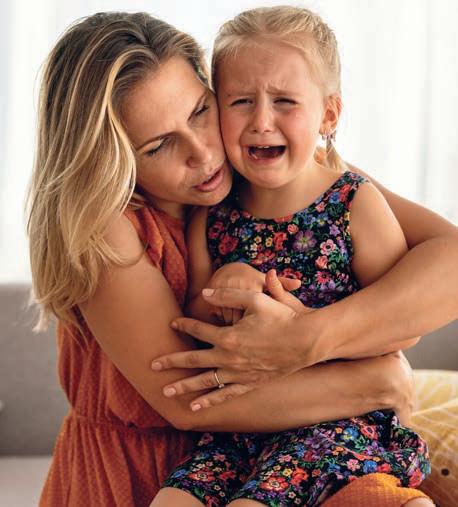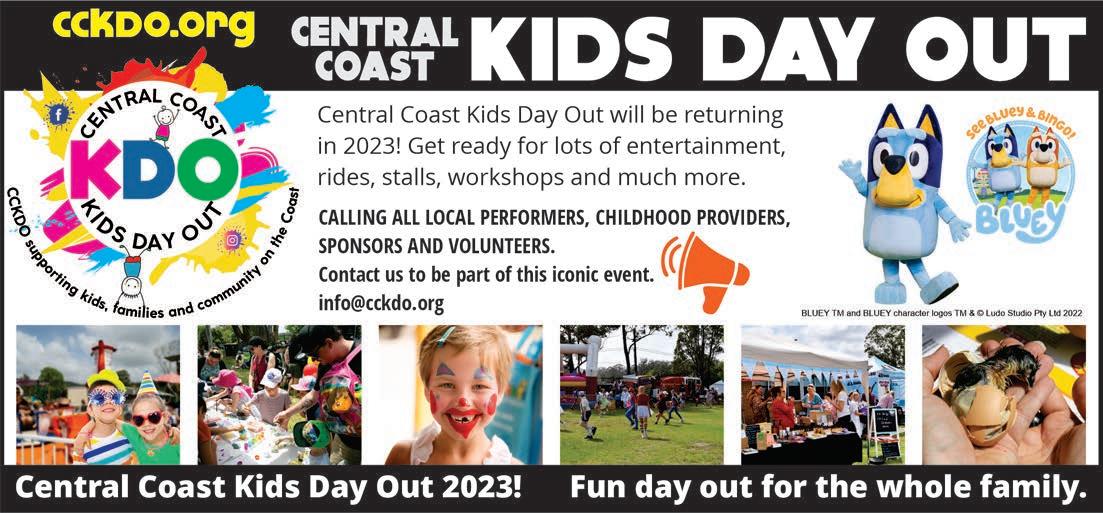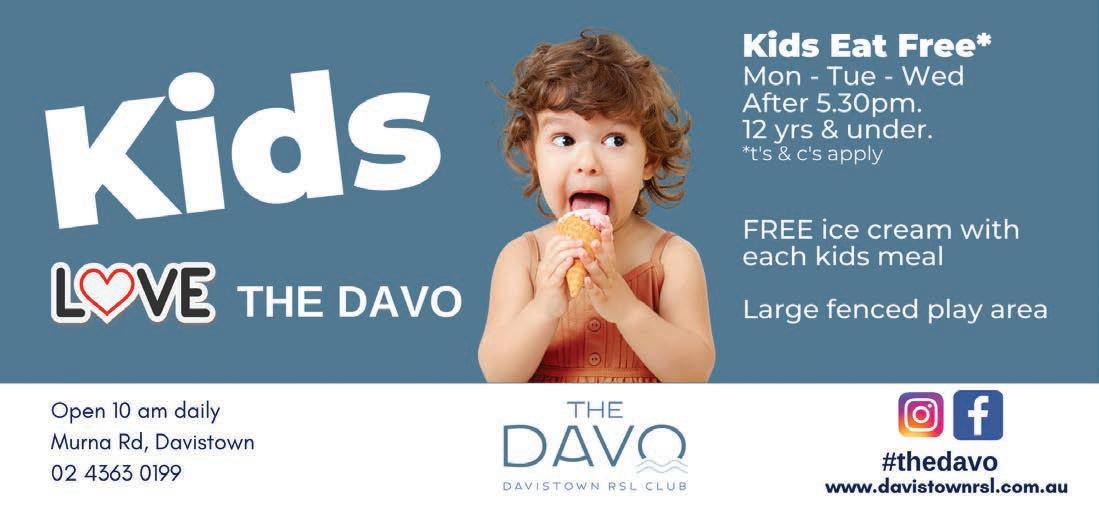
5 minute read
Listening to your child’s tears is healing
Listening to your child’s tearsishealing BY ALITA BLANCHARD, PARENT COACH
Crying is healing. Researchers have established that crying releases oxytocin and endorphins. These feel–good chemicals help ease both physical and emotional pain.
We all need to learn to cry more often in safe, supportive spaces or alone with our own healing tears. And our children need to be allowed to cry, while being lovingly supported in our arms or nearby while we regulate our own nervous system so that we can offer them true compassion. This is called ‘coregulation’.
When we can learn to listen to our child’s healing tears, we can start to build our capacity to listen to their other very big feelings like tantrums, meltdowns and rage. This is how we build a truly safe, connected relationship with our children over the long term.
Tears are a healthy response to overwhelm, pain, frustration or painful feelings. Tears (and yes tantrums too) are the body’s best way to release those big feelings. When listened to, crying is a healthy and healing release. Crying is generally either: A form a communication of an unmet need eg. hungry, tired, thirsty, scared, lonely, afraid, hurt etc, OR A healthy emotional release of a backlog of painful feelings, stress and trauma.
We all experience pain, stress and trauma, not feeling heard and listened to is painful. Our births can be traumatic. Illness, injury, hospital visits, confusion, lack of skin on skin, stress in the family home and unfamiliar people in a child’s life can all be stressful and sometimes traumatic.
What else can be painful or stressful for children: Daycare and school can be deeply painful for many children The birth of a new sibling Sensory overload Sibling fights Moving home Relationship strains.
We can’t magically make life easier and less stressful. We can often make some changes to decrease some stress within our homes (our own self care, simplifying, slowing life down, getting support) but babies and children will still be impacted. They will carry these layers of stress and painful feelings in their bodies and become dysregulated until someone they feel safe with has the capacity to support them, to listen to their feelings and help them release and come back to a state of balance.
What to do when they are crying
We need to be a safe harbour for our child to release their tears and feel truly seen. This means we need to work on our own regulation skills: Open your heart to empathy for your child’s pain Awareness – speak in mind or out loud

how you feel “I am feeling…. Less talking, focus on presence Self regulation for the adult ie. Sensory calming tools like slow long exhales, soften your voice, hand on your heart, cold water on your face Focus on being present and regulated Remember that tears are a healthy release Focus on no shame, no punishment, no threats, no time outs Listen, listen, listen.
It’s ok to make mistakes – we all do! Often. Kids and adults. Be gentle on yourself. This process is not easy and takes a lot of practice.
Focus on this truth
My child is not being manipulative, disrespectful, defiant, bad or naughty. They are simply having big feelings and are communicating a need. It’s my job to help them get that need met. They need to release this overwhelming emotion.
An example: Child starts crying. Practice pausing, don’t rush in to fix/ punish/distract, notice your own feelings and speak them in your mind or out loud “I feel scared/overwhelmed/frustrated. I can take a moment to slow everything down”. If it helps, go outside, look at the sky, breathe long slow exhales. Let your child hold your hand or walk with you if they are feeling scared even if they are crying, have a mantra “This will pass. I can do hard things. My needs matter. I can be their safe person”. Then open your heart to listen to the tears. It will get easier with time.
What to say when your child is crying
Find your own version of these words and remember to be you. Don’t try to sound like someone else. I’m here. I’m listening I’m here with you. I’ll listen to your tears Would you like a hug? (Sometime they won’t and that’s ok) I see you are upset. This is hard I won’t leave you alone I will always love you – tears, and upsets and anger are welcome here.
Why it’s so hard for us to listen to tears
Tears are hard for many of us to listen to. We are conditioned to stop tears by comforting children or possibly suppressing their feelings or, worst case scenario, punishing or shaming them for having these big feelings. We are biologically wired to comfort a crying child and, Many, if not most, adults were not allowed to cry as children – we may have been distracted, punished, hurt, ignored, suppressed or worse, punished for crying. “Stop crying or
I’ll give you something to cry about” is a common line many people are sadly familiar with.
How to build your capacity to listen to healing tears. Firstly educate yourself. Read articles on the healing power of tears, “crying in loving arms” and crying release Learn about nervous system science within parenting eg. “coregulation” and build your awareness Allow yourself to cry – notice the stories that appear when you are crying eg. “This is weak, I am being silly”. Use a wiser caring voice to remind the younger parts of you “You are allowed to cry. This is healing“ Create listening partnerships with safe friends or people in your community Attend a Mothers Circle or parenting workshop that allows for vulnerability Seek support from a therapist or counsellor who encourages healing tears Contact a Parent Coach for private sessions for support, listening and emotional release.
Alita Blanchard – The Aware Mama Alita is a mother of 4 young boys (including a stillborn son Remy) on the NSW Central Coast of Australia. She is a trauma informed Conscious Parent Coach trained by Jai Institute of Parenting, Women’s Circle and Rites of Passage facilitator. She provides regular mothers circles, workshops, events, listening time and parent coaching programs Alita is passionate about creating a safe space for mothers to feel heard and seen in the intensity of their motherhood journey. She supports and guides mothers in their transformation through motherhood and helps to bring awareness to their own needs and emotions so they can feel more aligned, aware and connected to themselves and their children. Web: www.theawaremama.com.au Socials: @alitablanchard_parentcoach Email: alitablanchard@gmail.com






